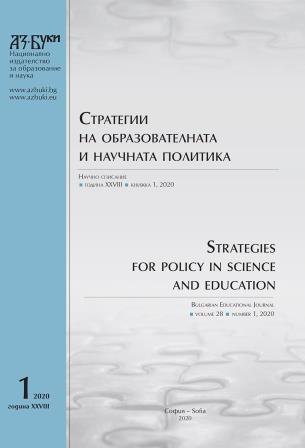Развитие и актуални модели на взаимодействието „образователни институции – семейство“ като мерки за преодоляване на рефлексивни фактори за дискриминация в образованието
Development and Current Models of Interaction „Educational Institutions – Family” as Measures to Take over Reflective Factors for Discrimination in Education
Author(s): Lalo P. KamenovSubject(s): Social Sciences, Education, Psychology, Sociology, School education, History of Education, Educational Psychology, Social psychology and group interaction, Organizational Psychology, Sociology of the arts, business, education, Social Norms / Social Control, Inclusive Education / Inclusion, Sociology of Education
Published by: Национално издателство за образование и наука „Аз-буки“
Keywords: non-teaching staff; inclusive education; parent interaction; educational mediation
Summary/Abstract: The modern education system is faced with the challenge, together with its elements, in new realities to carry out its functions and to fulfil all its obligations and responsibilities in accordance with the Law on Pre-school and School Education, and at the same time in an integrated approach to fulfil the requirements of the European and international legislation in the field of education. Not only the concept of relations in the educational system is changing, not only the desires, skills, motivation, goals and needs of the participants in the process are changing – the educational environment itself is changing in order to provide the most suitable conditions for educational integration, tailored to the individual features of each child and student. Educational integration is an institutional process whereby educational entities carrying ethnocultural specificities interact in a unified educational environment, forming intercultural competences and shared civic values in the process of education and upbringing, preserving their ethnocultural identity and receiving equal opportunities for social realization. An indisputable factor in the effectiveness of this process is the provision of a supportive educational environment through the management and implementation of „educational institution – family“ interaction models, as well as the introduction of family-oriented models to overcome reflective factors leading to difficult communication between the actors involved in the educational process.
Journal: Стратегии на образователната и научната политика
- Issue Year: 28/2020
- Issue No: 1
- Page Range: 78-93
- Page Count: 16
- Language: Bulgarian
- Content File-PDF

